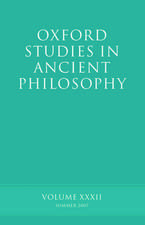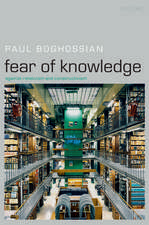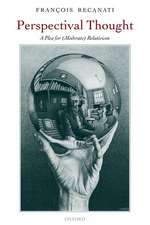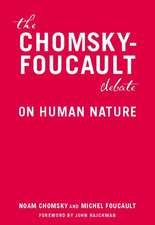Intimacy: A Dialectical Study
Autor Dr Christopher Laueren Limba Engleză Paperback – 24 feb 2016
| Toate formatele și edițiile | Preț | Express |
|---|---|---|
| Paperback (1) | 179.45 lei 3-5 săpt. | |
| Bloomsbury Publishing – 24 feb 2016 | 179.45 lei 3-5 săpt. | |
| Hardback (1) | 656.32 lei 6-8 săpt. | |
| Bloomsbury Publishing – 24 feb 2016 | 656.32 lei 6-8 săpt. |
Preț: 179.45 lei
Preț vechi: 208.02 lei
-14% Nou
Puncte Express: 269
Preț estimativ în valută:
34.35€ • 37.32$ • 28.87£
34.35€ • 37.32$ • 28.87£
Carte disponibilă
Livrare economică 31 martie-14 aprilie
Preluare comenzi: 021 569.72.76
Specificații
ISBN-13: 9781474226264
ISBN-10: 1474226264
Pagini: 224
Dimensiuni: 156 x 234 x 15 mm
Greutate: 0.38 kg
Editura: Bloomsbury Publishing
Colecția Bloomsbury Academic
Locul publicării:London, United Kingdom
ISBN-10: 1474226264
Pagini: 224
Dimensiuni: 156 x 234 x 15 mm
Greutate: 0.38 kg
Editura: Bloomsbury Publishing
Colecția Bloomsbury Academic
Locul publicării:London, United Kingdom
Caracteristici
Brings post-Hegelian continental philosophy into engagement with the social sciences
Notă biografică
Christopher Lauer is Assistant Professor of Philosophy at University of Hawai`i at Hilo, USA.
Cuprins
Introduction Intimacy and Feeling Dialectics Limitations of dialectics Note on Terminology Chapter 1: The Gift Initiation Appeal and Delay Absenting A Measured Gift: Lysias's Speech Chapter 2: Touching Touching as shared experience Proportion The myth of the inmost touch The wound Chapter 3: The Heartbeat Systole and diastole Indifference and longing Chapter 4: The Between God and the space between The rupture Accessibility Chapter 5: The Fetish The interest The fetishized body The promise Chapter 6: Embedding The secret The third The neutralized third: gossip The generalized third: irony Fraudulence Chapter 7: Conflict The dismissal The dispute Violence Debate Chapter 8: The Mêlée Consumption, destruction, and waste Laughter Frenzy Millenarianism Chapter 9: The Future The test The commitment Planning Identification Anticipatory mourning Chapter 10: Mourning Gathering and retraction Haunting Singularity Afterward Bibliography Notes
Recenzii
Chris Lauer cut his philosophical teeth on the rigors of German Idealism, especially Hegel and Schelling. He is also well-versed in contemporary Continental thought and has a profound sense of what is still living in German Idealism for contemporary thinking and living. It is with great pleasure that we now receive this "dialectical" account of intimacy (influenced by Hegel, Schelling, and critical theory, but not limited to them). Displaying impressive erudition, Lauer's new work is both strikingly original and a welcome new development in this venerable tradition.
In a work that is both humble and profound, Christopher Lauer's dialectics uncovers intimacy's contradictions. Unraveling naïve, romantic and ironic notions alike, Intimacy testifies to the power and meaning of intimacy for human relationships, while ultimately arguing that intimacy cannot live up to its own demands.
This is a masterful work of philosophy. Lauer artfully shows why dialectical thinking is relevant today, and he demonstrates what it looks like with respect to the issue of intimacy. Playful and unassuming, the scholarship is first-rate and wide-ranging in both scope and implications. The writing is fluid and purposeful. A must read for anyone interested in love, loss, community, and the stakes of contemporary philosophy.
In a work that is both humble and profound, Christopher Lauer's dialectics uncovers intimacy's contradictions. Unraveling naïve, romantic and ironic notions alike, Intimacy testifies to the power and meaning of intimacy for human relationships, while ultimately arguing that intimacy cannot live up to its own demands.
This is a masterful work of philosophy. Lauer artfully shows why dialectical thinking is relevant today, and he demonstrates what it looks like with respect to the issue of intimacy. Playful and unassuming, the scholarship is first-rate and wide-ranging in both scope and implications. The writing is fluid and purposeful. A must read for anyone interested in love, loss, community, and the stakes of contemporary philosophy.


















